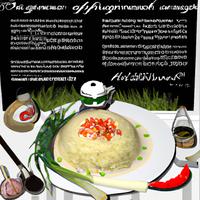
1 serving (200 grams) contains 250 calories, 7.0 grams of protein, 5.0 grams of fat, and 40.0 grams of carbohydrates.

Log this food in SnapCalorie

Nutrition Information
Calories |
294.1 | ||
|---|---|---|---|
% Daily Value* |
|||
| Total Fat | 5.9 g | 7% | |
| Saturated Fat | 2.4 g | 12% | |
| Polyunsaturated Fat | 0 g | ||
| Cholesterol | 11.8 mg | 3% | |
| Sodium | 470.6 mg | 20% | |
| Total Carbohydrates | 47.1 g | 17% | |
| Dietary Fiber | 2.4 g | 8% | |
| Sugars | 2.4 g | ||
| protein | 8.2 g | 16% | |
| Vitamin D | 0 mcg | 0% | |
| Calcium | 58.8 mg | 4% | |
| Iron | 1.8 mg | 10% | |
| Potassium | 176.5 mg | 3% | |
* Percent Daily Values are based on a 2,000 calorie diet. Your daily values may be higher or lower depending on your calorie needs.
Food Attributes
Source of Calories
About Rizoto
Risotto is a creamy Italian dish made primarily from Arborio rice cooked slowly in broth, often accompanied by wine, butter, onion, and parmesan cheese. Popular variations may include vegetables, seafood, or meats, providing a versatile base for flavor combinations. Originating in northern Italy, risotto is celebrated for its comforting texture, achieved by releasing starch from the rice during cooking. While risotto can be rich due to the inclusion of cheese and butter, it also offers nutritional benefits. Arborio rice is a good source of carbohydrates, and add-ins like mushrooms, spinach, or seafood can boost fiber, vitamins, and protein. However, recipes heavy on cream and cheese may increase calorie content and saturated fat, making moderation key. For a healthier version, olive oil can replace butter, or whole-grain rice can substitute Arborio. Classic risotto remains a delightful balance of indulgence and nourishment, tailored to suit diverse palates.



